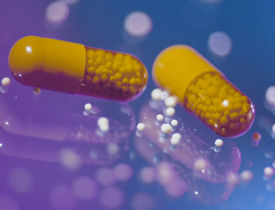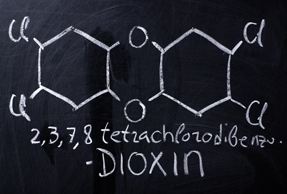More compounded products recalled, diabetes drug approved
This regulatory update covers a recall of a compounding pharmacy's products due to mold and approval of a sodium-glucose co-transporter for diabetes.
Recalls, warnings and label changes
A recall by Med Prep Consulting of all lots of all products compounded at its facility due to a report of visible mold in five bags of magnesium sulfate provided to one hospital.

A recall by Clinical Specialties of all sterile products repackaged and distributed by the pharmacy due to lack of sterility assurance, after five reports of serious eye infections associated with Avastin unit dose syringes from the pharmacy.
A recall by Pallimed Solutions, Inc., of all sterile compounded products due to observation of visible particulates in vials of sterile products during a recent FDA inspection.
A class I recall of Symbios GOPump Elastomeric Infusion PumpKit because the flow restrictor bead may become displaced from its fitting, which may permit solutions to flow at a higher rate than intended.
A nationwide recall of specific lots of Guardian II and Guardian II NC hemostasis valves, because they pose a slightly increased risk of air leakage that may lead to an air embolism.
A class I recall of CAS I/II Absorbers in the Spacelabs anesthesia workstations and service kits due to a flaw that may lead to an increase in the carbon dioxide concentration of the inhaled gas being delivered to the patient.
A recall of one lot of 0.9% sodium chloride injection, USP, 1,000 mL, by Hospira, due to one confirmed customer report of brass particulates in the primary container.
A safety alert, related to the previous recall of Neptune 1 Silver and 2 Ultra waste management systems, reminding clinicians that anyone still using the device must be properly trained, aware of the risks associated with the device, and implementing the Neptune Pre-use Checklist.
A notification of incomplete foil seals on certain lots of MTS Anti-IgG and A/B/D monoclonal and reverse grouping cards.
A class I recall of BCI remote alarm cables because they are not transferring alarms signals from the Capnocheck capnography system when used with some remote nurse alarm systems.
A recall of one lot of BIVIGAM immune globulin intravenous (human), 10% liquid, 100-mL sterile vials due to observation of visible particles during an inspection.
A class I recall of Animas Corporation 2020 insulin infusion pumps because a component issue may trigger the pumps to sound a false alarm or warning that can lead to unintended delivery of insulin. The pump also has a software limitation that will impact the ability of the pump to function past Dec. 31, 2015.
Approvals
Canaglifozin (Invokana) tablets, to improve glycemic control in adults with type 2 diabetes, along with diet and exercise. The drug is the first sodium-glucose co-transporter 2 (SGLT2) inhibitor to be approved. Safety and effectiveness were evaluated in nine clinical trials of over 10,000 patients, which showed improvements in hemoglobin A1c and fasting plasma glucose. The drug has been studied as a stand-alone therapy and in combination with metformin, sulfonylureas, pioglitazone and insulin. It should not be used in patients with type 1 diabetes, diabetic ketoacidosis, severe renal impairment or end-stage renal disease. The most common side effects were vulvovaginal candidiasis and urinary tract infection. Because the drug is associated with a diuretic effect, it can cause a reduction in intravascular volume leading to orthostatic or postural hypotension. The FDA is requiring five postmarketing studies: a cardiovascular outcomes trial; an enhanced pharmacovigilance program to monitor for malignancies, serious cases of pancreatitis, severe hypersensitivity reactions, photosensitivity reactions, liver abnormalities, and adverse pregnancy outcomes; a bone safety study; and two pediatric studies.
Tobramycin inhalation powder (TOBI Podhaler) for the management of cystic fibrosis patients with Pseudomonas aeruginosa . The plastic, handheld inhaler device contains a dry-powder formulation of tobramycin that is inhaled twice daily for 28 days. Patients should then stop the therapy for 28 days before resuming again. Effectiveness was established in a study of 95 pediatric and adult patients in which treated patients experienced a statistically significant increase of 12.5% in forced expiratory volume in one second compared to 0.09% on placebo. Common side effects included cough, hemoptysis, lung disorder, shortness of breath, fever, mouth and throat pain, dysphonia and headache.
Dimethyl fumarate capsules (Tecfidera) to treat adults with relapsing forms of multiple sclerosis. Two clinical trials showed patients on the drug had fewer relapses compared to those on placebo, and one showed an association with less worsening of disability. The drug may decrease lymphocyte counts, so patients' lymphocyte count should be assessed before starting treatment and annually thereafter. Flushing and stomach problems were the most common adverse reactions.
Doxylamine succinate and pyridoxine hydrochloride (Diclegis) for pregnant women experiencing nausea and vomiting. The delayed-release tablet, taken whole on an empty stomach, is intended for women who have not adequately responded to conservative management, such as dietary and lifestyle modifications. Studies have shown that the drug reduces nausea and vomiting more effectively than placebo and does not cause harm to the fetus. The most common side effect was sleepiness. The drug was previously sold as Bendectin and was pulled from the market due to concerns about birth defects.




